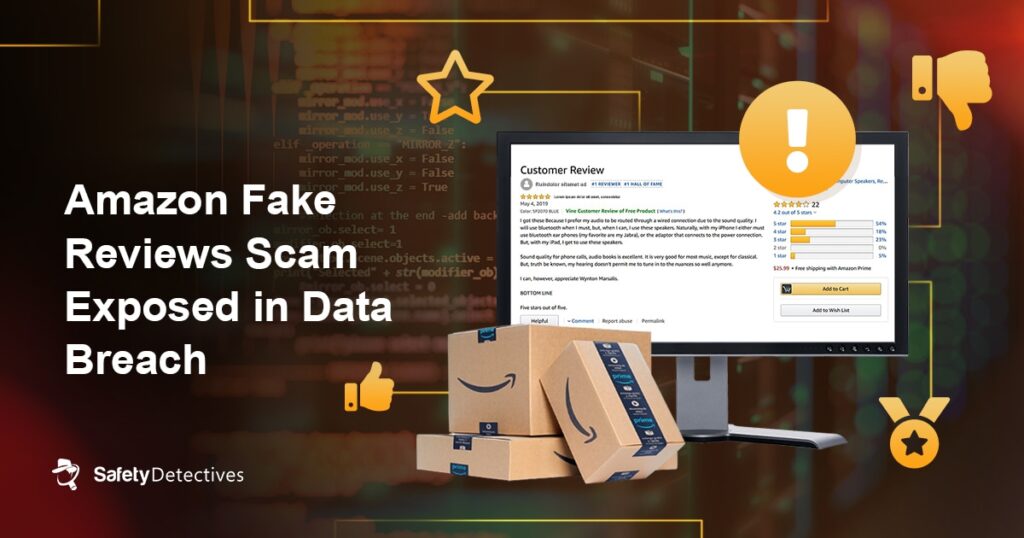Currently, most of us probably suspect that false critics on Internet shopping sites are a real thing. Whether to offer “free product tests” after buying something or meeting an exam that makes the product a little too good to be true, it is easy to assume that false critics are one thing which occurs. Today, however, a new violation of security gives us a better idea of how it could be widespread.
Earlier this year, healthydetective people discovered an Open Elassesesearch database containing what they call a “Trote Treasure” of messages between Amazon Sellers and Amazon customers regarding false critics. The suppliers in question have generally offered free products in exchange for positive criticism, and in all safety experts indicate that up to 200,000 people are involved in the violation of the data.
More than 13 million records comprising 7 GB of data were revealed by this elasticsearch server, which was closed and secured several days after saferydetectives discovered early March. SafetyDetectives indicates that it could not identify the owner of this server, which prevents alarming from alarming that the server was sitting wide open. It is obvious, however, that the server contained communications between several different suppliers and customers – not just a single provider.
The information that has been disclosed include email addresses with WhatsApp and Telegram phone numbers belonging to the suppliers. The client data that has been disclosed includes 75,000 Amazon profile links and account of those who sold sales critics, PayPal email addresses, email addresses and “fans names” that may include first names and surnames users.
Instead of communicating across Amazon, sellers and people who sell criticisms often communicate with other email applications. Examine sellers, it often seems to be responsible for buying the Amazon product and waiting a few days before publishing it a positive review of it, often with seller’s instructions regarding what to say and how Make the exam seems credible. After that, they were promised a refund on the point purchase price – which has often been done by PayPal to avoid using Amazon systems – and have been allowed to keep the article in exchange for their review positive.
Clearly, this has quite important implications for Amazon suppliers and users who participated in false criticism because the accounts of the two could be terminated and the fines could be taken according to the situation in the world, these. Suppliers and revisers are based. If you have a moment, be sure to read the full dataset report on this data break because there is a lot of good information, including tips on how to identify false critics on Amazon.











More Chintu Stories
How to solve the problem of the Canon Printer Printing Printing page?
How to solve [pii_email_316cb5e2e59f1ce78052] error?
How to Fix Outlook [pii_email_9ba94c086590853d8247] Error Code